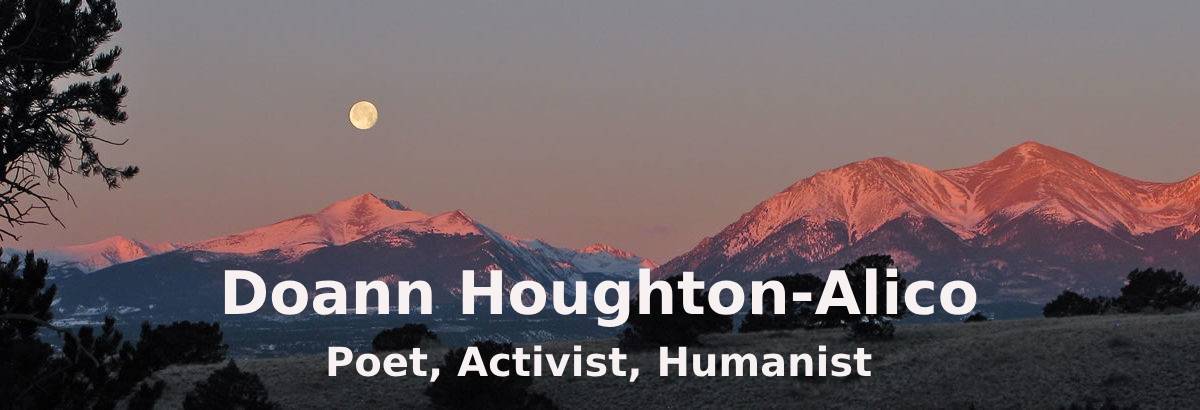I hope you have a good sense of geography or an atlas or globe nearby. I know I’m jumping all over the world in these blogs between my experiences and adventures described in Voice of a Voyage: Rediscovering the World During a Ten-year Circumnavigation and my recent five-week odyssey in Asia with my grandson. Although now home in the Colorado Rockies, both those jostle for position in my thoughts.
On Sunday, August 17 at Salida’s independent bookstore, The Book Haven, from 5:30 to 7:30, I’ll be hosting Voice’s book launch party. If you’re in Chaffee County or environs, you’re certainly invited, but you need to email me if you will be coming as we need to know how many there will be. [doann.houghton@gmail.com] This will be a party and book signing, but there will be entertainment too. If you’re somewhere else, consider buying a copy of Voice of a Voyage and toasting the essential element for hard-working authors, YOU, their readers!
I know I already wrote some stories about my visit to Cambodia with my grandson, Ethan. But here, I would like you to read his impressions. His visit to the Landmine Museum and the stories he learned there are heartbreaking. It’s a lot of words to read online, but it’s worth it.
Siem Reap was probably the most strikingly different place on this trip, in relation with Las Vegas, and with all the other places we’ve visited. Up until this point we had been in mostly large cities that, although foreign, were developed and fairly comfortable financially. There were beggars in Bangkok and Chinatown was a bit poor but I feel this was more reflective of the area of Bangkok than the city as a whole. But I digress, before I had been to Cambodia I had never seen a city so dark in the evenings. Even along the main road from the airport the only lights other than the streetlights is the occasional light over a bathroom door or bar, it’s very strange having grown up in Vegas and also having just come recently from Tokyo. Electricity is not something to be wasted in that part of the world, I suppose. [I can’t help adding that this should be true everywhere. Doann]
Our hotel had signs telling us that giving money to the children on the street encouraged them to stay on the street instead of going to school, which I initially found startling, but was no where near prepared for the number of 5-to 10-year-old boys and girls following us around asking us to buy a postcard or water. There have been moments on this trip that have made me so grateful. They often creep up on me, but looking down at these kids whose priority is not who has a crush on who in 3rd grade but whether or not they’ll make enough money that day to eat is incredibly eye opening.
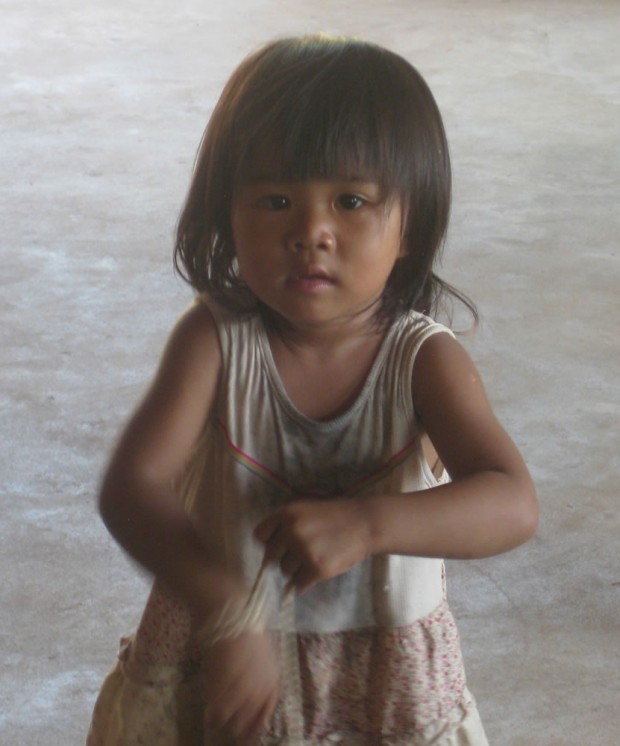
One of the receptionists at our hotel told us her story which involved her struggling to move from the village and go to school and work, and I realized that this is still a very much real thing that happens to real people in 2014. We also met her cousin Chen, who lives in what is essentially a small hut. He sleeps on the floor and was very excited to receive his first pair of shoes with laces. . . .
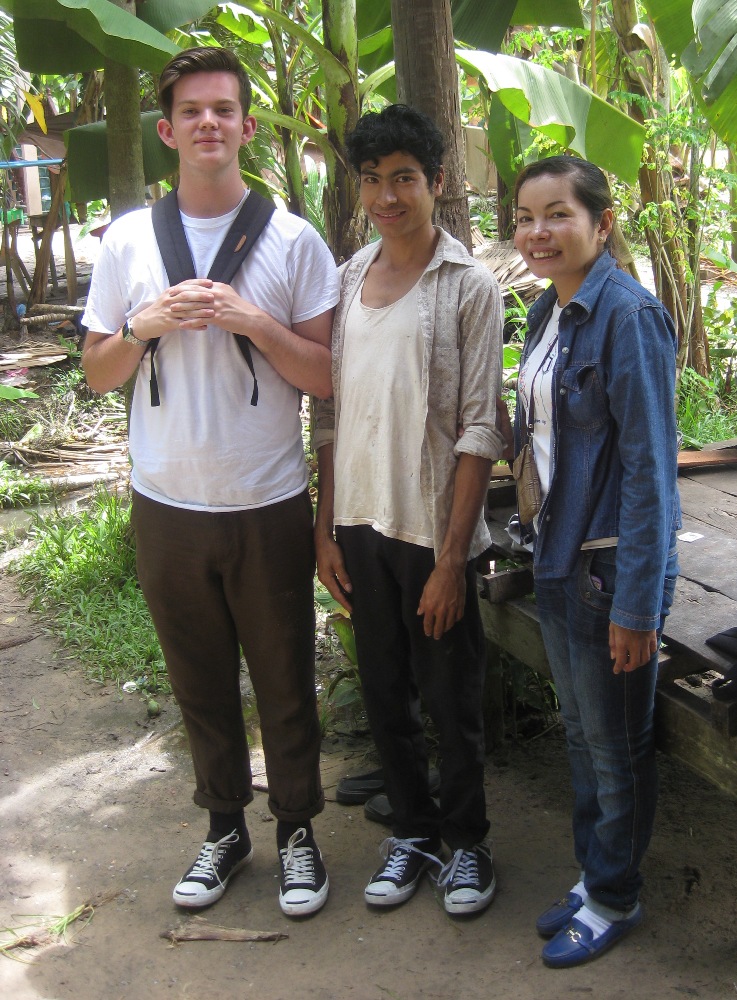
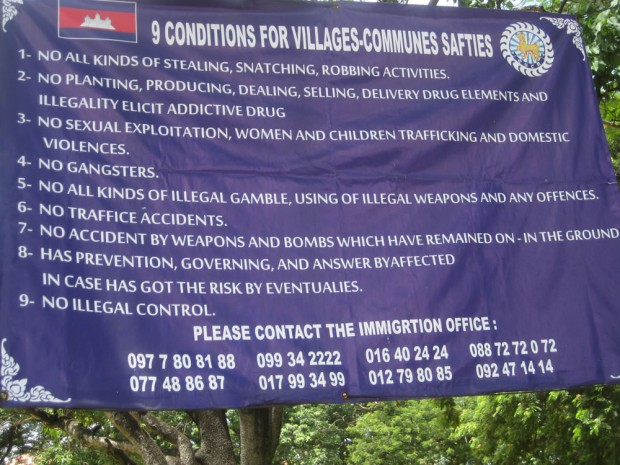
As much as we complain about the United States losing its status as a world power and things to that effect, the Western world is still viewed as so much better and apart from some of the poorer nations in the East. Which to me is very unfortunate, I don’t like being thought of as separate from other people. They’re human beings and they live differently than us yes, and their struggles are certainly different, but they see themselves as inherently different and that makes me sad. Maybe because we’ve told them they are, who knows. Cambodia is a very tragic country, and one that has suffered culturally and economically at the hands of power-hungry men for the last 5 decades of the 20th century. Pol Pot and the Khmer Rouge regime tore what potential the nation had to grow and prosper away from it.
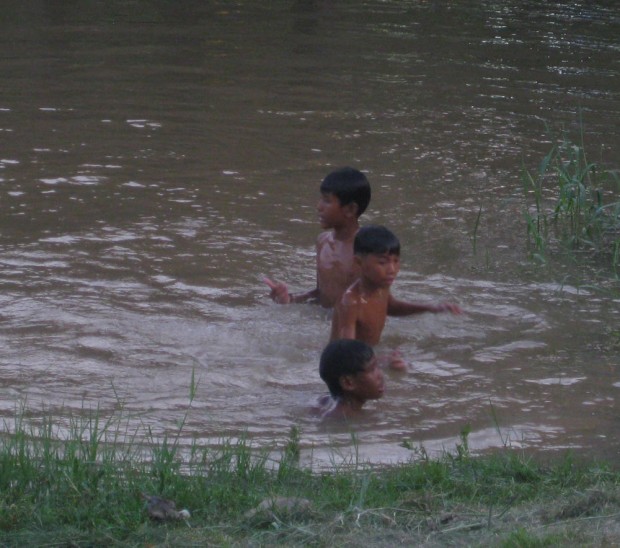
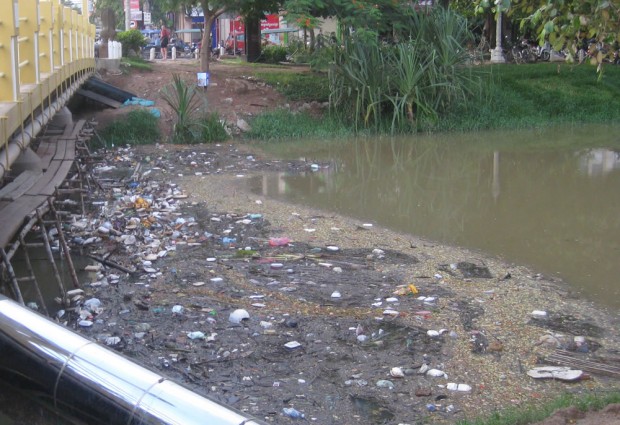
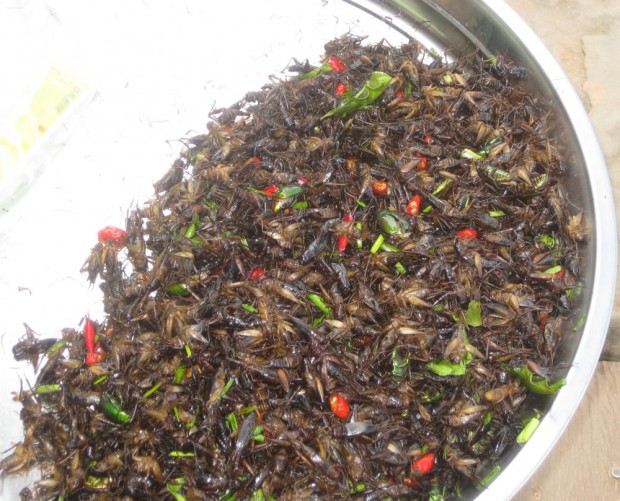
The prime example of Cambodia’s chaos under the Khmer Rouge and the Vietnam War is a man who now goes by the name Aki Ra. Aki Ra is a Khmer man born around 1970 (he doesn’t know his exact birthday or his original name) whose parents were killed in the Khmer Rouge regime when he was around the age of 8. He became a child soldier at the age of 9 and was able to hold an AK-47 at the age of 10. One story he told is that many of his contemporaries were handed fully loaded guns with no explanation, and a good friend of Aki Ra’s, around the same age, put the gun to his head and pulled the trigger, not knowing how guns worked. Aki Ra fought with the Khmer Rouge then defected to the Vietnamese army around the age of 12. There was an incident where the two armies were exchanging gunfire across an empty field, Aki Ra had been shooting at the enemy and eventually realized that the next man he was about to target was his uncle (fighting for the Khmer army at that time). Aki Ra feigned a headache to his fellow soldiers in order to not have to shoot, but they made him shoot and he simply shot over his uncle’s head until he ran away. He did not inform his uncle of this particular incident until many years after the fact, and they were even able to laugh about it. The most incredible part of Aki Ra’s story however, is that from early in his fighting days he was trained to lay landmines, and he got very good at it. He says he had no idea how many he laid in his time as a soldier but the number is certainly in the tens of thousands. Being young he didn’t know exactly how devastating or cruel these devices were but after his time as a soldier he realized and felt immense grief, and devoted the rest of his life to demining the mines he and others had placed. He often worked by himself in small, unmapped minefields for almost 20 years before the Cambodian government (due to many men trying to demine mines and sell the metal for scrap becoming injured) forced all deminers to be licensed. Aki Ra himself stopped demining and founded an NGO and museum dedicated to demining these small “low priority” villages throughout Cambodia.
